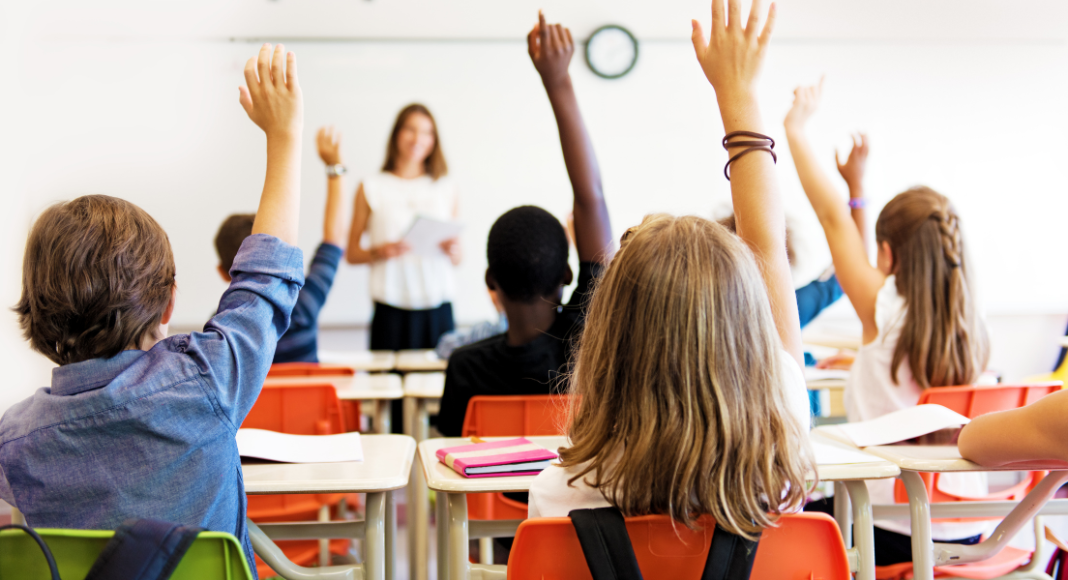 What do you think about when you think about a good leader? Or a good friend? I’ll name a few characteristics that come to mind: great listener, compassionate, self-aware, motivated, and adaptable. These people have high emotional intelligence.
What do you think about when you think about a good leader? Or a good friend? I’ll name a few characteristics that come to mind: great listener, compassionate, self-aware, motivated, and adaptable. These people have high emotional intelligence.
Besides being healthy, the next thing I want for my kids is high emotional intelligence. I want them to have the skills they need to go as far as they want to in life, to be surrounded by good people, and to make a positive impact in the world. However they see fit. That means they need to be able to calmly look at problems to find solutions and understand how others feel.
Of course, reading, writing, and arithmetic are important. If my kids want to take college English classes in high school, cool. If they spend their free time reading about astrophysics, cool. If they end up being valedictorian, that’s cool too. But whatever they accomplish (or don’t accomplish) academically doesn’t matter much if they go through life unhappy, unfulfilled, without empathy, or without the ability to create meaningful relationships with others.
As school board races heat up in front of the midterms, many candidates are running on this platform of “returning to the basics.” Whether it’s a lack of understanding about what Social Emotional Learning (SEL) does or it’s being used as a tool to create a culture war, I’m concerned. Here are a few reasons why we need SEL in schools.
SEL Improves Academic Performance and School Safety
Results across 213 studies involving more than 270,00 students showed students’ academic performance increased by 11 percentage points compared to students who did not participate in Social Emotional Learning.
Additionally, these students showed improved behavior in the classroom and increased ability to manage stress and depression. When students can self-regulate and problem-solve, school violence and bullying decrease. SEL can help all students – particularly those who are most at-risk or have experienced adversity or trauma.
SEL Offers a Fantastic Return on Investment
A research brief from Penn State University found that every $1 spent on SEL programs, there is an $11 return on investment. The study showed that SEL results in students working harder toward graduating and producing the soft skills employers seek.
SEL Increases Teacher Retention
Almost every school system is struggling with hiring and retaining great teachers. Yes, increasing pay is #1. But other challenges include keeping up with testing standards and stressful working conditions. Utilizing SEL can help create a school environment that is healthier and happier, helping to retain our valuable teachers. In Houghton Mifflin Harcourt’s Annual Education Confidence Report, 72% of educators said students’ social and emotional needs are a top concern, and 82% of teachers said that an integrated approach to SEL in the classroom could improve student outcomes.
SEL Creates a Lifetime of Benefits
The future leaders of our world will be those who can manage work stress, set goals for themselves, and collaborate with and demonstrate respect for their peers. Research shows that even Kindergarteners exposed to SEL are more likely to graduate from high school, complete a college degree, and obtain stable employment into adulthood.
The nay-sayers will argue that social-emotional learning should be taught at home. To that, I’d say – #1, not every kid gets that support at home, and #2, there are some situations and lessons that cannot be replicated or demonstrated at home. The nay-sayers might also bring up something they don’t like about their school’s current curriculum. To that, I’d say – talk to your school then. Like a math, science, or reading program – some are better than others. Probably no program is perfect, and there’s undoubtedly no program that will please every parent in a school district. But, the pros to Social Emotional Learning far outweigh the cons, and our kids need to learn these skills at home and school.
As you hear people use buzzwords and phrases like “return to academic excellence,” I encourage you to pause. We all want our schools to offer our students the best academic opportunities. But the way to do this is through a well-rounded education where our kids feel safe and valued and learn all the skills they need to succeed in life.








